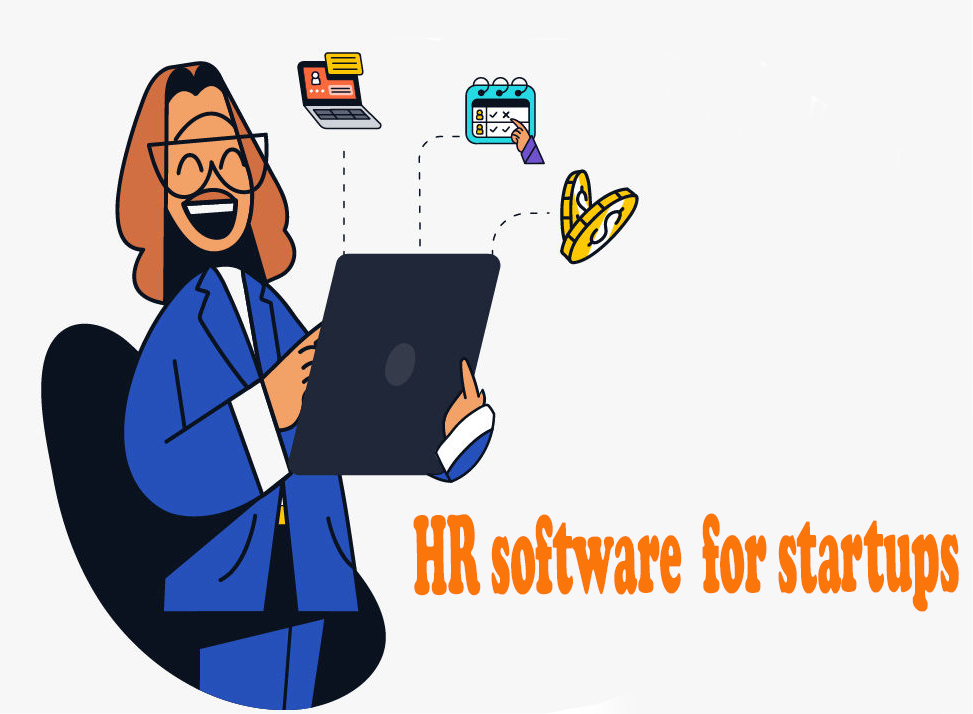HR technology startups are redefining the future of work, driving innovation, and transforming traditional workforce management systems. With billions in venture capital funding pouring into this sector, it’s clear that these companies are not just a fleeting trend.
The HR tech sector is experiencing rapid change, with new players joining the arena on a daily basis. Amidst all the buzz about AI and machine learning, one thing remains constant – the human element.
“By 2025, over half of large global companies will have adopted AI-enabled automation in their HR departments,” says Gartner. Utilizing data from a variety of sources to make sound decisions is becoming increasingly critical.
Understanding the Emergence of HR Tech Startups
The business landscape has been revolutionized by a new wave of HR tech startups. They are redefining human resource management with their innovative technologies and solutions. Let’s delve into why these companies have seen such exponential growth in popularity.
Venture Capital Fuels Growth
In recent years, venture capitalists have poured billions into this sector, signifying robust investor confidence in its potential for substantial expansion. The rapid rise of HR tech unicorns is a testament to the optimistic outlook on HR technology’s future prospects.
Apart from financial backing, another key driver behind their success lies in how they cater to evolving business needs effectively. With workplaces undergoing dynamic changes globally – from shifts towards remote work to an increased focus on employee experience – businesses seek out-of-the-box solutions that traditional systems may not adequately offer.
The Integral Role of HR Tech within Larger Human Capital Management Suites
For larger organizations looking at comprehensive human capital management suites, integrating HR tech brings about numerous benefits like enhanced efficiency through automation and streamlined processes across different functions within an organization.
This technological infusion allows businesses to manage aspects ranging from talent acquisition and performance management all the way through learning & development modules more cohesively using integrated software platforms offered by many HR tech startups today.
In addition to operational improvements, leveraging data-driven insights is a key factor in devising successful strategies and achieving organizational objectives.
These tools can significantly improve workforce planning accuracy while also helping identify trends impacting employee engagement or productivity levels sooner than conventional methods might allow.
Riding the wave of innovation, HR tech startups are transforming workforce management. Fueled by billions in venture capital, they’re reshaping business with data-driven solutions. #HRTech #StartupsClick to Tweet
The Impact of HR Tech on Businesses
As we navigate the digital era, HR tech startups are becoming game-changers in shaping businesses. Their innovative solutions and unique approaches often outperform traditional vendors by providing agile and custom-made services.
Innovation is their strong suit.
Consider this: these startups can create specific tools for particular business needs. Unlike larger human capital management suites that provide a broad spectrum of features, they have the flexibility to focus on niche areas or respond rapidly to emerging trends.
The Role of HR Tech in Larger Human Capital Management Suites
HR Technology Startups: Digital transformation through startup-developed technology within larger human capital management suites brings about immense benefits. It paves the way for streamlined processes like recruitment, payroll administration, performance tracking, and employee engagement – all under one roof.
A comprehensive suite powered by cutting-edge HR tech tools not only enhances productivity but also empowers better decision-making with real-time data insights provided by these technologies.
Risks And Rewards Of Engaging With Startups
Naturally, engaging with HR tech startups comes with its share of risks due to their relative novelty compared to established providers. “With great risk comes great reward.”
This saying holds true here as well. Early adopters who embrace disruptive technologies often gain competitive advantages via improved operational efficiencies or enhanced customer experiences which outweigh any potential risks involved.
To minimize risk exposure associated with investing in relatively untested technology from a startup company, diversification within your portfolio approach is recommended. By spreading investments across multiple promising ventures rather than betting everything on a single entity, you decrease overall risk while increasing chances for high returns.
Embrace the digital era with HR tech startups. They’re game-changers, offering agile services and innovation for businesses. With them, risk brings reward & boosts operational efficiency. #HRTech #StartupsClick to Tweet
Spotlight on European HR Tech
HR Technology Startups: The global market is experiencing a surge of innovation from European HR tech. This sector, teeming with promising startups and financial movements, holds its own against its U.S. counterparts.
It’s time to delve into Europe’s thriving HR tech landscape.
Sun Tzu once said, “Opportunities multiply as they are seized.” The same could be said for these innovative companies that have navigated numerous challenges to build successful businesses in this dynamic field.
Innovation drives success in any industry. In the case of European HR tech startups like Personio and Hibob, their unique solutions addressing diverse human resource management needs have not only driven their growth but also revolutionized how organizations operate today.
Techcrunch+ Noted Startups Making Waves
Techcrunch, an esteemed technology media platform, has highlighted several noteworthy names within the space.
Personio – Based out of Munich, offering a comprehensive software solution designed specifically for small-to-midsize businesses (SMBs). Their product suite includes everything from applicant tracking systems (ATS) to payroll processing functionalities.
Hibob – A London-based firm that offers people management platforms tailored towards modern workforces with features such as benefits administration and culture-building tools.
Rising Investment Levels Indicate Confidence In Sector Growth Potential
HR Technology Startups: Venture capital funding flowing into these startups over recent years suggests increased investor confidence.
According to investment levels, they more than doubled between 2018 and 2023 alone.
This trend can be attributed not just to technological advancements but also to changing attitudes toward remote working due to the COVID-19 pandemic implications, which boosted demand for efficient digital HR solutions, providing ample opportunities for further growth within this vibrant sector.
European HR tech startups are making waves. Companies like Personio and Hibob are revolutionizing workforce management, with investment levels doubling between 2018-2023. The future of work is here. #HRtech #startupsClick to Tweet
Unicorns in the Making – U.S. HR Tech Startups
The landscape of HR tech startups within the United States is witnessing a significant surge, with several companies attaining ‘unicorn’ status – valued at over $1 billion. These trailblazers are introducing game-changing solutions that revolutionize human resource management.
An excellent illustration of this trend is an all-in-one platform designed for small businesses offering payroll and team management tools along with benefits administration capabilities. The company’s rapid ascension to unicorn stature can be credited to its inclusive services tailored specifically towards SMEs—a demographic often neglected by larger competitors.
Another noteworthy instance involves a firm specializing in talent acquisition software aimed at enabling data-driven hiring decisions for enterprises. This unique approach towards enhancing recruitment efficiency has garnered substantial investor interest, catapulting it into the coveted unicorn club.
How Major Tech Companies Compete with Startups
In response to these emerging unicorns, established technology giants aren’t sitting on their laurels either—they’re actively seeking ways to secure their share of this lucrative market through strategic acquisitions or developing proprietary offerings internally.
A prominent example includes one global giant’s recent purchase of a leading space planning technology provider—an initiative intended not only as direct competition against startups but also adding value for existing customers who prefer integrated solutions from one source.
This demonstrates how large-scale players leverage extensive resources and customer base to pose formidable opposition against rising stars in the sector. However, the inherent agility coupled with an innovation-centric culture prevalent among startup founders still offer them an edge when addressing niche needs or rapidly evolving trends like remote work dynamics or diversity & inclusion practices.
Suffice it to say, this dynamic between underdogs vs titans makes the US’s HR tech industry an exciting arena worth keeping tabs on.
Key Takeaway:
U.S. HR tech startups are not just making waves, they’re becoming unicorns. These trailblazers offer unique solutions tailored to neglected demographics or niche needs, giving them an edge over larger competitors. However, the big guns aren’t resting on their laurels either – it’s a thrilling tug-of-war in the HR tech arena.
Building Software for Hybrid Work Environments
In the evolving landscape of work, hybrid environments have emerged as the new norm. HR tech startups are rising to this challenge by crafting software that caters specifically to these blended settings.
Navigating the world of remote and in-office collaboration
The key is enhancing communication channels, fostering collaboration, and driving productivity irrespective of an employee’s location. This includes virtual meeting spaces or project management tools that enable smooth teamwork across geographical boundaries.
Climate Tech Meets HR Tech
An interesting development is the convergence between climate tech and HR tech. As businesses become more environmentally conscious while maintaining operational efficiency, innovative startups are designing solutions that encourage sustainable practices within hybrid workplaces.
This could mean promoting energy-efficient devices among employees or developing applications that calculate individual carbon emissions based on daily activities – including commuting if not fully working remotely.
Moving beyond traditional roles
These initiatives underscore how technology can facilitate environmental sustainability within organizations – showing us just how far-reaching impacts from strategic partnerships with HR departments can be.
Safeguarding Employee Data Amidst Digital Shifts
A crucial aspect when building software for such mixed setups involves safeguarding employee data privacy. As noted by Privacy Policies+, robust policies must be in place against unauthorized access or potential breaches as information becomes increasingly digitized due to widespread remote arrangements.
Prioritizing transparency along with security measures
Data encryption techniques coupled with stringent access controls form part of best practices here, alongside regular audits for compliance purposes. It’s equally important to ensure employees understand what personal data gets collected through these platforms and why it’s necessary, so transparency remains paramount throughout this process.
Discover how HR tech startups are transforming hybrid work environments. From fostering remote collaboration to promoting sustainability and safeguarding data, they’re reshaping the future of work. #HRtech #FutureOfWorkClick to Tweet
HR Technology Startups: Revolutionizing Workforce Management
Discover how HR technology startups are transforming workforce management, driving innovation in businesses, and shaping the future of work.
Exchange Explores Startups – A Deep Dive into Investment Trends
The investment landscape for HR tech startups is teeming with activity, largely due to the bullish sentiment of venture capitalists. This uptick in bull-market funding levels signals confidence in the sector’s potential and an anticipation of high returns.
It’s time to understand what drives this investor confidence.
An old adage goes, “The trend is your friend,” and when it comes to investing in HR tech companies, following trends can be key.
Informed investors don’t just follow their gut; they study market dynamics meticulously before placing bets on promising HR tech unicorns or any other type of startup. Understanding these patterns gives them insights into where opportunities lie within the larger human capital management suites industry.
Navigating Privacy Policies – Safeguarding Employee Data
Data privacy has become paramount today as we witness increasing instances of data breaches worldwide. Any business utilizing software developed by HR tech startups must prioritize employee data protection—this directly influences how venture capitalists view prospective investments within this sphere.
Venture capitalists scrutinize each firm’s privacy practices before making decisions about whether or not to invest—the focus being on what kind of data is collected, how it’s stored and protected, and who gets access to it. Under which circumstances might that information be shared or sold off?
This level of scrutiny isn’t paranoia—it’s prudent risk assessment. When considering investments in European HR Tech firms like Personio—a startup specializing in Human Resources Software for small to medium-sized businesses—they look at adherence to GDPR guidelines governing user-data protection across Europe.
Taking lessons from success stories…
Investors are often drawn to firms demonstrating comprehensive security measures against cyber threats since such commitment reduces associated risks safeguarding sensitive information.
Key Takeaway:
HR tech startups are reshaping workforce management and attracting bullish investments due to their innovative solutions. However, venture capitalists don’t just follow the herd; they meticulously analyze market trends and prioritize data privacy before backing these potential unicorns.
Leading The Way – Inspirational Stories From Startup Founders
These pioneers are not just transforming the realm of human resource management but also setting a benchmark for future generations.
A journey worth noting: David Hanrahan and Element AI
In the sea of HR tech unicorns, one that stands out is Element AI, co-founded by David Hanrahan. His vision was fueled by his conviction in prioritizing employee well-being alongside business outcomes. This led him to develop an intuitive HR platform leveraging artificial intelligence, offering personalized learning paths, wellness programs, and performance feedback mechanisms tailored uniquely for each employee’s needs.
Another compelling narrative comes from Shradha Agarwal at Outcome Health, which developed a revolutionary healthcare-focused solution designed specifically for medical professionals. By incorporating features like automated scheduling systems and patient record management into their product offering, they’ve significantly improved operational efficiency within this sector. This wasn’t without its share of challenges as she faced initial skepticism due to her non-traditional background outside technology or health sciences; however, through sheer determination coupled with innovative thinking, she proved naysayers wrong.
We then move over to Europe where we find Carlos Piera Serra leading Delivering Happiness Spain (DH Spain). Focusing on an often overlooked aspect when considering traditional KPIs or financial metrics alone – happiness at work – he took inspiration from Zappos’ famed culture code while building his venture. DH Spain today stands among successful European HR tech startups transforming workplaces across borders, providing valuable lessons about resilience and innovation amidst adversity for aspiring startup founders globally.
Discover how HR tech startups like Element AI and Outcome Health are revolutionizing workforce management with innovative solutions. These inspiring founders prioritize employee well-being and operational efficiency, shaping the future of work. #HRtech #StartupsClick to Tweet
Conclusion
The rise of HR technology startups is a testament to the dynamic evolution of workforce management.
These ventures are not just securing significant funding, but also revolutionizing businesses with their innovative solutions.
Larger enterprises and smaller outfits alike can leverage these products for greater efficiency and streamlined processes.
Europe’s burgeoning HR tech scene is matching pace with its U.S. counterparts, giving birth to potential unicorns in both markets.
Innovations extend beyond geographical boundaries, catering to hybrid work environments and even intersecting with climate tech for sustainable business practices.
Investment trends reveal bullish sentiments around this sector, indicating robust future growth despite data privacy concerns that need careful navigation.
The inspiring stories from startup founders serve as a beacon for aspiring entrepreneurs looking to make an impact in the realm of HR technology startups.
If you want to learn more about this, sign up for my newsletter.


